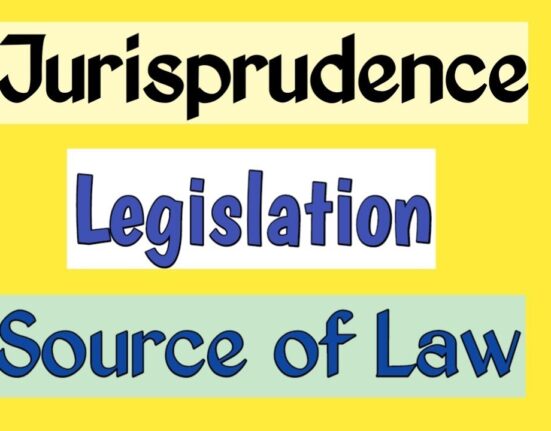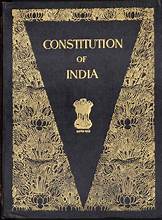Radha Nandi, a first-year law student from Sarsuna Law College has written this Article “Consumer Grievance Redressal Forums”
Introduction
A consumer is anybody who consumes certain products or services for personal consumption. “Consumers” do not include those who get products or services for free, make purchases for business needs, or use services as employees under a service agreement. Consumers are depending more on e-commerce and digitalization due to the expanding technological platforms and supplier options. The ever-growing alternatives and expectations have created opportunities for customer service deficiencies, unethical business tactics, and fraud. As a result, the government created a number of regulations to protect customers from such actions. The “Consumer Protection Act, of 1986” is one of them that is essential to safeguarding the interests of innocent consumers. This Act did not cover transactions involving e-commerce, but as these platforms grew, a new Act, the consumer protection Act of 2019, was created and went into effect on July 20, 2020.
The Central Consumer Protection Authority (CCPA), which strives to protect customers from fraud, unfair commercial practices, misleading ads, and violations of their rights as consumers, may be established by the Central Government under Section 10 of the new Act. A consumer complaint may be taken into consideration by the CCPA suo moto, at the direction of the central government, or after receipt of the complaint. The new Act makes sure that consumers’ complaints are heard and properly addressed in suitable channels. A customer has two options for filing a complaint: either directly or through counsel.
What are consumer courts?
Despite the fact that customers are what drive most trade and business. Consumer fraud has been committed for a long time. Other laws and regulations, such as the Indian Contract Act, the Sales of Goods Act, the Civil Procedure Code, etc., defend the rights of innocent customers. Customers are reluctant to file complaints because of its improper implementation, nevertheless. The government’s fantastic success in this regard was the Consumer Protection Act of 1986. The Act was created in order to safeguard consumers’ rights and interests. The Act mandates the establishment of statutory entities known as Consumer Courts to handle lawsuits brought by consumers. To lessen the cost, time, and strain on the consumer seeking proper recourse, this is an essential step under this Act. Consumer courts are established at the district, state, and federal levels for this reason.
The legislation calls for the formation of Councils to inform and encourage consumer awareness of dishonest business practices.
A complaint may be made in accordance with the act in situations involving unfair trade practices, restricted trade practices, unfair contracts, the higher price demanded by the seller, the sale of items that pose a risk to life and property, and other situations.
Consumer Grievance Redressal Forums
Jurisdiction
The Act of 1986 was superseded with the Consumer Protection Act of 2019 in order to reflect the current situation. The new Act covers e-commerce transactions under its purview. The definition of the complainant under the act has also been extended to include a parent or legal guardian if the complainant is a minor.
The 2019 Act has also made a number of substantial changes with regard to the Consumer Redressal Forums. These include:
Territorial Jurisdiction
Unlike the 1986 Act (which required that a complaint be filed by the complainant at a place of residence or business of the respondent only), the Consumer Protection Act, 2019 now allows consumers to register their complaints at a place where all or one of the opposing parties resides or conducts business, the place of cause of action, or where the complainant is residing or works for gain. This increases the scope of territorial jurisdiction. The ultimate goal of this is to eliminate the challenges and issues customers confront when they pursue legal action against firms.
In accordance with the scope of the monetary jurisdiction, the complaints are filed in the proper forums.
Pecuniary Jurisdiction
The Act of 2019 made certain substantial changes to the pecuniary jurisdiction for all forums, including the District, State, and National Commissions, respectively:
- According to Section 34 of the 2019 Consumer Protection Act, the District Commission’s higher financial threshold has been raised from Rs.20,000 to Rs.100,000.
- According to Section 47 of the Consumer Protection Act of 2019, the State Commission’s maximum financial jurisdiction has raised from Rs. 100,000 to Rs. 10,000,000.
- According to Section 58 of the Consumer Protection Act of 2019, the National Commission’s maximum financial jurisdiction has raised from over Rs. 10,00,00,000 to over Rs. 10,00,00,000.
These changes significantly increased the pecuniary jurisdiction’s range of application. Along with the aforementioned changes, the 2019 Act has also altered how pecuniary jurisdiction is determined, as opposed to the 1986 Act, which determined pecuniary jurisdiction based on the value of the goods and services as well as the compensation sought, preventing an increase in the amount of compensation sought to bring the complaint under the pecuniary jurisdiction of the State.
Moreover, The total cost of the products or services and the amount of compensation requested by the complainant are used to calculate the complaint’s worth. Additionally, In the case of M/s Pyaridevi Chabiraj Steels Pvt. Ltd. v. National Insurance Corporation Ltd., this decision was made.
Alternate Dispute Resolution (ADR):
ADR in the form of mediation is another essential redressal option included in the 2019 Act. This guarantees quick conflict resolution and is less expensive. According to the 2019 Act, the complaint may be sent to mediation upon its admission, at the initial hearing, or at any other time before the dispute is settled. With both parties’ written assent, provided within five days, the forum must submit the dispute to mediation.
In order to do this, the new legislation stipulates that each district and state, as well as the national commission run by the central government, will establish a consumer mediation cell that shall be affixed to the forums.
Its foundation is founded on the ideas of natural justice.
E-Complaints:
Another provision of the 2019 Act relates to the electronic submission of complaints to district forums. The government has not yet established the guidelines in this regard. This was done to address issues brought on by the growing digitalization.
Composition
District Consumer Dispute Redressal Forum
Each district forum would comprise of:
- A President who is or has previously been eligible to serve as a district judge, and
- Two more members, one of whom must be a woman, who is capable, upright, and knowledgeable in dealing with issues relating to economics, law, business, etc.
State Consumer Dispute Redressal Forum
Each state should establish a consumer dispute resolution panel, which should be made up of:
- A president who is now serving as or has previously served as a High Court judge and is chosen by the government of the relevant state. Only after consultation with the Chief Justice of the High Court are these appointments made, and
- Two more members are required, one of whom must be a woman, and who has the capacity, integrity, and standing to deal with issues pertaining to the economy, law, commerce, public affairs, administration, etc. As previously stated, these appointments must only be made following consultation with and recommendation by a selection committee made up of:
- President of the state commission,
- Secretary of the law department of the State,
- Secretary in charge of the department dealing with consumer affairs in the respective state.
National Consumer Dispute Redressal Forum
The national consumer dispute redressal forum sits atop the state consumer forum. According to the Act, the forum must include:
- A president is chosen by the national government who is now serving or has previously served on the Supreme Court. These selections must, by law, be made after consulting the Chief Justice of India.
- The remaining four members, one of whom must be a woman, are all capable, upright, and knowledgeable people who have dealt with issues including business, law, public affairs, administration, and other relevant topics.
According to the statute, the Central government will make these appointments based on the committee’s recommendations. The committee will be made up of the following members:
- A candidate to be proposed by India’s top justice is a Supreme Court judge.
- The secretary of the Indian government’s department of legal affairs.
- Secretary of the Indian government’s department responsible for consumer affairs.
Conclusion
The 2019 Consumer Protection Act safeguards the interests of consumers. This law was essential in the Redressal of Consumer Grievance and complaints that were being heard in consumer courts and Forums around the nation. Moreover, It provides methods and tools for quickly resolving customer complaints.
Moreover, The Consumer Protection Act of 2019’s primary goal is to safeguard customers’ rights by establishing institutions for the prompt and efficient administration and resolution of consumer disputes.
Also Read: 10 Landmark Judgments of Tort Law, Click Here!
References
- http://ncdrc.nic.in/
- https://pib.gov.in/PressReleasePage.aspx?PRID=1642422
- https://prsindia.org/billtrack/the-consumer-protection-bill-2019#:~:text=The%20Consumer%20Protection%20Bill%2C%202019%20was%20introduced%20in%20Lok%20Sabha,Paswan%20on%20July%208%2C%202019.&text=It%20will%20regulate%20matters%20related,trade%20practices%2C%20and%20misleading%20advertisements
- https://www.law.cornell.edu/wex/alternative_dispute_resolution
- https://legislative.gov.in/sites/default/files/A1872-09.pdf
- http://ncdrc.nic.in/bare_acts/Consumer%20Protection%20Act-1986.html
- https://legislative.gov.in/sites/default/files/A1872-09.pdf Consumer Grievance Redressal Forums.







Leave feedback about this